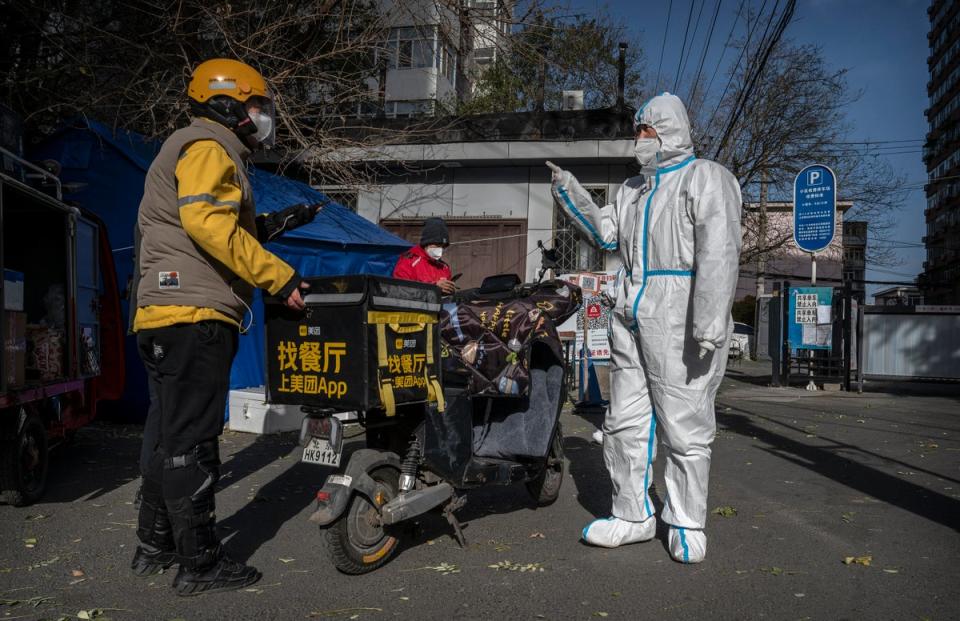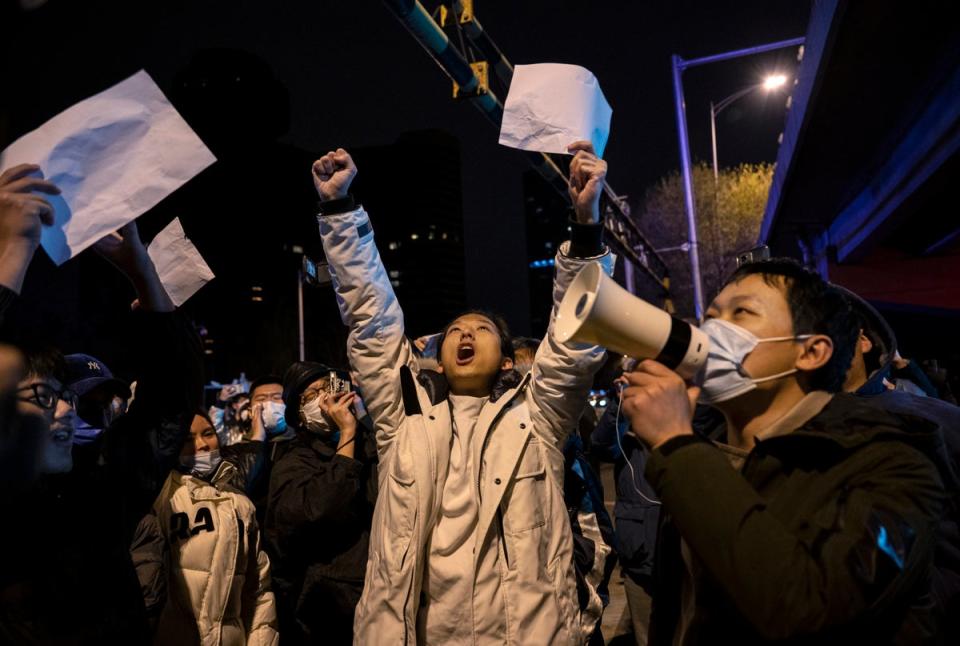China to accelerate push to vaccinate elderly against Covid-19 amid protests

China will accelerate its push to vaccinate people aged 60 and over amid rising Covid cases - but experts have warned that it may be too late to prevent a “devastating” wave of infections and hospitalisations.
Beijing's National Health Commission (NHC) on Tuesday pledged to make "special arrangements" for the vaccination of elderly people against the virus as low immunisation rates increase pressure on the country’s health service.
President Xi Jinping's "Zero Covid" strategy has seen the country impose harsh regional lockdowns and mass testing in response to outbreaks of the virus, despite the rest of the world largely abandoning all restrictions. China has a low vaccination rate among elderly groups, with under two-thirds (65.8 per cent) of people aged over 80 not yet fully vaccinated.
Vaccination programmes have allowed most countries to return to a pre-pandemic normal, as there are several Covid jabs that provide a high level of protection against severe illness. The "Zero Covid" strategy has stymied China's economic growth and recently triggered the most significant protests of Mr Xi's decade-long rule.
Beijing claims its Covid policy has kept the death toll in the thousands, avoiding the high fatalities reported in other countries.
The NHC said it would target more vaccinations at people older than 80 and reduce to three months the gap between basic vaccination and booster shots for the elderly.
"It is also the hope that our elderly friends, especially those over 80, will take the initiative and get vaccinated for their personal health protection," said Xia Gang, an NHC official in charge of immunisation services.

The elderly will get easy access through special priority services, with mobile vaccination vehicles also pressed into service, the NHC said.
Officials will also launch a publicity campaign to fight vaccine hesitancy among the elderly, promoting the benefits of vaccines in staving off severe illness and death.
Lawrence Young, a virologist and Professor of Molecular Oncology at the University of Warwick, told the Standard that China is in a “terrible dilemma”.
“Whilst the Zero Covid has resulted in fewer deaths, China is now fighting against a more infectious variant with vaccines that are not quite as effective as the MRNA vaccines being used in other countries. Their population has also been isolated so they haven’t had the significant waves of infection which allowed us to build up a wall of immunity.
“They have been so dependent on drastic lockdowns and the idea that infection can be completely erased that they haven’t rolled out enough vaccines. They also decided to vaccinate the young rather than the old, which has fuelled vaccine hesitancy.”
He said China’s healthcare system would “not be able to cope” were the disease to spread through the population, as there are fewer intensive care beds per person than in other countries.
“The problem with China’s current vaccine is while people are protected up to a point, they don’t provide the same level of protection that the MRNA vaccines do and the immunity doesn’t last as long either.
“Beijing is really concerned in terms of what it can do. It is a political issue - Xi can’t back down or be seen to do so but they need to transition into a different system.”

Prof Young said the “only way out” for China was to launch a mass vaccination programme and roll out jabs to the elderly.
“My fear is that in this population, a failure to do so could result in something quite devastating in terms of the level of disease.”
He noted that countries such as Australia and New Zealand had successfully transitioned out of a Zero Covid strategy through mass vaccination, easing restrictions only after a high percentage of the population had been immunised.
Prof Paul Hunter, Professor in Medicine at the University of East Anglia, said: “China is now in a very difficult situation. If they give up on their zero covid strategy now the infections and severe disease will surge in the short term. But if they continue will their zero covid strategy even more people will lose their protection before being exposed to the virus and so severe disease and deaths will be even greater in the long term.”
China recorded 38,421 domestic infections on Tuesday, a slight decrease from record highs seen over the weekend.
Footage captured in the city of Hangzhou on Monday night showed hundreds of police occuping a large square. Residents in Beijing also told Reuters that police had been asking people for their phones to check if they had virtual private networks (VPNs) and the Telegram app, which has been used by protesters.
The spark for the protests was a fire last week in the western city of Urumqi that authorities said killed 10 people. It was rumoured that lockdown measures had affected the ability to rescue people in the burning building, a claim denied by Chinese officials.

 Yahoo News
Yahoo News 